Narrow AI applications should be developed.
How do you evaluate the current direction of using AI in state agencies?
- The current national strategy on AI only has some scattered contents assigning tasks to a number of ministries and branches to apply AI in their operations, but there is no general direction on the use of AI in state agencies (SGA) from central to local levels (for example, application to perform functions and tasks of SGA, serving public interests, user interests; priority selection in applying AI to SGA; ensuring risk management principles such as transparency, accountability...
It can be seen that the current AI applications are mainly aimed at improving the efficiency and quality of operations of state agencies and civil servants, for example, virtual assistants for judges and civil servants. Therefore, in the coming time, AI applications need to aim more at the interests of the people, such as virtual assistants used in providing public services; It is necessary to pay attention first to "putting people as the number 1 priority".
Specifically, for Vietnam, what recommendations do you have to be able to apply AI more successfully and effectively?
- According to our survey in 2024, most respondents believe that for Vietnam, it is more suitable to develop narrow, specialized AI applications in each field, because it is less expensive; structured data is more available (most of the data of state agencies is structured data); people understand the data and the algorithms used, it is easier to distinguish right from wrong and easier to control AI.
In addition, it is necessary to allocate a proportion of financial resources to invest in both research and development of AI models, because Vietnamese people still do not grasp any core AI technology (algorithms are still held by foreigners), as well as investing in infrastructure (there must be key laboratories, when there is computing infrastructure, researchers will be able to invest in creating a new algorithm model).
It is especially important to invest in and utilize AI infrastructure. For AI infrastructure, in the short term, depending on the readiness of each unit, within the limited framework of the infrastructure, it is possible to develop simpler AI solutions that use less computing power, as the Supreme Court of Tay Ninh has done for a long time. Or adjust and reduce the complexity of AI solutions to suit the data and computing power, as in the case of developing a virtual assistant to support the review of legal documents.
In successful AI applications, state agencies have built data storage systems with sufficient capacity to meet the increasing storage needs due to the continuous addition of AI training data. In the medium and long term, to upgrade current AI solutions, or develop complex AI models/solutions in state agencies, such as forest fire and landslide warnings, socio -economic data analysis, a very large data capacity is required, cloud storage infrastructure, and computing infrastructure must also be large. For example, Tay Ninh is planning to build a data storage system on specialized fields such as environment, agriculture, climate, socio-economics, land, etc., ready with data for AI applications in those fields when all other conditions are met.
According to a study by MIT, AI only truly brings sustainable growth value to organizations/enterprises if it is applied widely enough (over 25% of the organization/enterprise's tasks); the value AI brings to organizations/enterprises develops according to the J curve, accordingly, results and work efficiency increase gradually according to the level of application. To a certain extent, this is a reference figure to consider the scope and level of AI application in state agencies in Vietnam.
Public-private partnerships to harness the potential of AI applications
 |
Three-way cooperation is needed to set the most appropriate problems for AI. (Illustration photo) |
What about cooperation with businesses, sir?
- State agencies can establish cooperative relationships to use data center infrastructure services, cloud computing platform services, and AI data storage services from large enterprises such as Viettel andFPT to deploy AI applications.
In fact, Viettel has recently provided infrastructure for a number of localities; specifically, it is deploying infrastructure to support Hoa Binh province, located at Viettel; supporting Lang Son to build a new data center (TTDL), transferring from the old TTDL. At the same time, the option of renting AI service infrastructure is also recommended for state agencies, because it saves investment costs, system upgrades, equipment maintenance and operation costs, and does not waste resources. This solution has a favorable legal basis, as Decree 82/2024/ND-CP has regulations to support and create more favorable conditions for renting IT services.
In addition, it is necessary to establish public-private partnerships because establishing partnerships with private parties is very important to fully utilize the potential of AI in state agencies, especially in the context of state agencies facing difficulties in infrastructure resources, data, and professional capacity in AI. For a long time, state agencies in Vietnam often place orders with large enterprises or use the infrastructure and human resources of those enterprises to perform information technology tasks. In the coming time, it is necessary to expand bidding to other private enterprises with suitable AI solutions. As experienced by other countries, it is possible to build a list of reliable technology enterprises so that state agencies can feel more secure in choosing partners to implement AI solutions. It is possible to study and learn from successful cases in other countries, with the results of transferring knowledge, technology and effective methods from the private sector to state agencies.
Can you be more specific about how other countries have done it successfully?
- For example, in France, the Government has funded the “AI Incubator” program to promote collaboration between government agencies, startups, private companies and educational institutions to develop and share AI tools and solutions.
Or in Singapore, the AI Trailblazers public-private partnership initiative between several Singapore Government agencies and Google Cloud aims to accelerate the development of AI solutions. Together with 50 private sector enterprises and organizations, 50 government agencies are given free access for 3 months to Google's toolkits including: high-performance GPUs, the Vertex AI platform, pre-trained generative AI models, and low-cost developer tools. This allows agencies, businesses, and organizations to build and test their own AI solutions in a controlled and dedicated cloud-based environment before deploying or commercializing them.
Need to integrate AI teaching in public administration training schools
Although the Government has specific strategic goals, AI human resources are still a big problem for Vietnam today. Do you have any recommendations to improve the AI response capacity of the current state agency team?
- One of the core competencies of human resources of state agencies in AI application is to recognize and know how to pose "problems" about AI close to reality, according to the specific tasks of the state agency. At the same time, these people need to have the ability to connect three parties, including themselves as the middle person, posing the problem, monitoring and supervising the solution of the problem; the technology enterprise side solves the AI problem in terms of technology; and the professionals provide input knowledge close to the AI tasks and problems.
In addition, it is necessary to improve digital capacity (including AI and AI application in state agencies) for officials and civil servants. Accordingly, these contents need to be integrated into current training and development programs of the political school system and public administration school. Similar programs in other countries need to be researched, learned, and selectively applied to suit state agencies in Vietnam. In addition, it is necessary to take advantage of programs for state agencies of BigTechs such as Google to improve the capacity of officials and civil servants.
Specifically, it is necessary to first build and develop human resources for management and operation, AI training including experts or IT staff specialized in AI, data, network security to operate and optimize the system, optimize data training models. At the same time, it is necessary to have human resources in specialized fields in the form of Expert Teams in specialized fields to build process flows, synthesize knowledge, mind maps, evaluate and censor the quality and value of data that users interact with, and generate natural language. These two groups of human resources need to regularly coordinate closely throughout the entire process of designing, testing, operating, and checking AI applications in practice.
Thank you very much!
Source: https://baophapluat.vn/khuyen-nghi-ve-ung-dung-ai-trong-cac-co-quan-nha-nuoc-o-viet-nam-post549280.html


![[Photo] 60th Anniversary of the Founding of the Vietnam Association of Photographic Artists](/_next/image?url=https%3A%2F%2Fvphoto.vietnam.vn%2Fthumb%2F1200x675%2Fvietnam%2Fresource%2FIMAGE%2F2025%2F12%2F05%2F1764935864512_a1-bnd-0841-9740-jpg.webp&w=3840&q=75)
![[Photo] National Assembly Chairman Tran Thanh Man attends the VinFuture 2025 Award Ceremony](/_next/image?url=https%3A%2F%2Fvphoto.vietnam.vn%2Fthumb%2F1200x675%2Fvietnam%2Fresource%2FIMAGE%2F2025%2F12%2F05%2F1764951162416_2628509768338816493-6995-jpg.webp&w=3840&q=75)




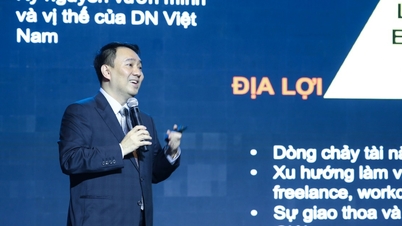




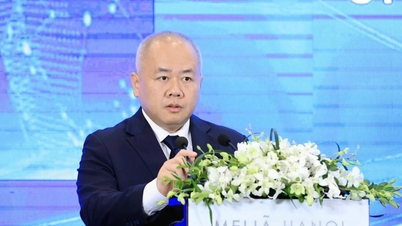













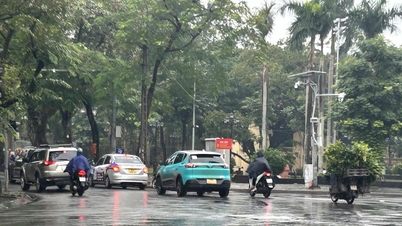









































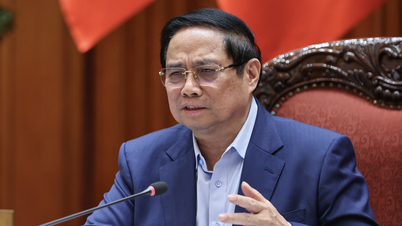










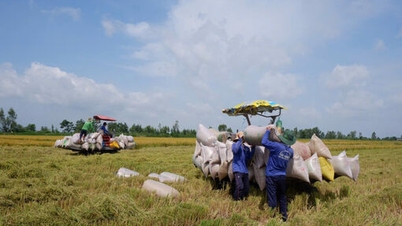

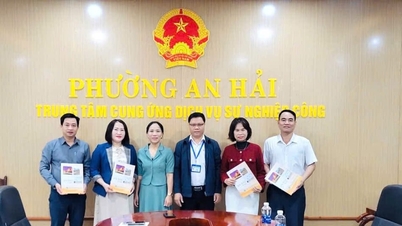























Comment (0)